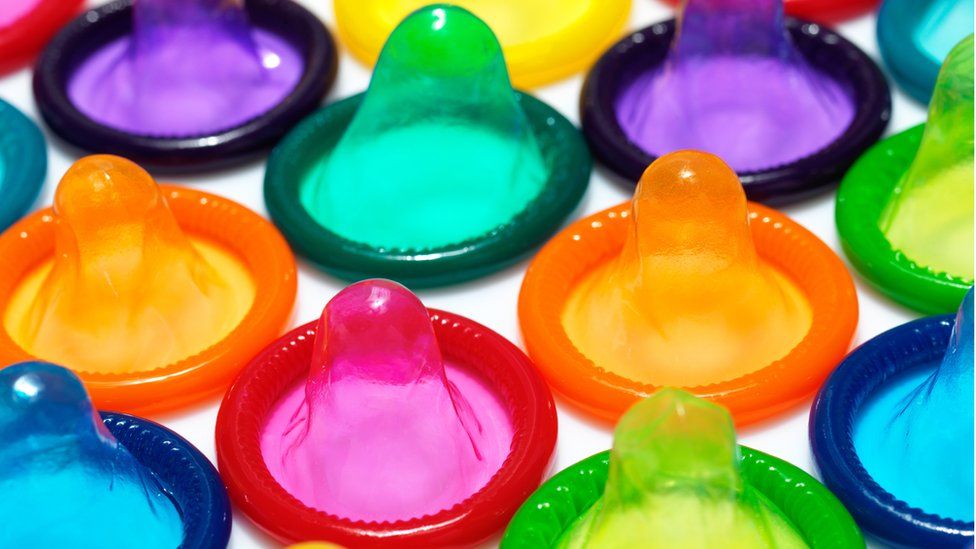Sexually transmitted infections: What to do if you get one
- Published

Sexually transmitted infections are rife among young adults in England.
There were 144,000 cases of chlamydia or gonorrhoea diagnosed among people aged 15 to 24 last year, according to Public Health England.
That's the equivalent of almost 400 per day, or one every four minutes.
Noah, 19, told the BBC he was in "disbelief" when he was diagnosed with an STI, adding he thought it was something that happened to other people.
"I'd never experienced something like that before," he said. "I wasn't exactly sure what it was. I didn't want to believe it."
So, what should you do if you have an STI?
Dr Peter Greenhouse - a sexual health consultant - says that anyone who notices anything wrong should "get a check-up as soon as possible" at their local sexual health clinic.
If people are unsure whether or not they have an STI, they can also order a free home test online.
For those who test positive using a home kit, the next step is an appointment at the clinic.
If there are no sexual health clinics nearby, book an appointment with your local GP.
'I've never used protection': What are these people's attitudes to safe sex?
Should you be nervous about speaking to a doctor?
It's understandable for people to feel embarrassed to speak about sexual health - but there is no reason to be nervous.
"All the people who work in sexual health clinics have been self-selected for being sympathetic about sex… for being sex positive," Dr Greenhouse explains.
"Most of us have been there, and even if we haven't, we're sympathetic and non-judgemental."
If you go to a sexual health clinic, the last thing you need is someone telling you off - and that's not what you'll get.
What are the next steps to take?
The next step, Dr Greenhouse says, is get in contact with your partner - or former partners - to alert them about your situation.
It may be embarrassing, but warning former partners that they might have an infection means they can get treated quickly and it could stop them from passing it on to someone else.
Most STIs can be cured with a simple course of antibiotic pills or cream - it's essential you do not engage in sexual activity until you have completed your course of antibiotics.
For longer-lasting infections, consult your doctor about the best way to manage future sexual activity.
What's the best way to alert former sexual partners?
First of all, don't panic.
Remember, however overwhelmed you may feel, your doctor is there to help you.
You can tell previous partners yourself, with some people preferring to do it face to face, and the doctor can give you advice on the best way to do it.
But if that is something you don't feel up to, some clinicians will offer to make the calls for you.
Other clinics even have an anonymous texting service they use, telling the person a former partner has been diagnosed with an STI and how to get tested.
There are also a number of online tools that offer a similar experience.
The important thing is to let them know so they can get treated, as well as to stopping the infection from spreading further.
Fact or fiction?
There are plenty of myths about STIs - and information online is not always accurate.
Here are a few myths that need busting:
Can you catch chlamydia from a toilet seat? No, chlamydia is a bacterial infection that is transmitted through unprotected sex or contact with sexual fluids.
Can you catch STIs from sharing a towel? The only STI that has a chance of being spread in this way is pubic lice. They are parasitic insects that live in pubic hair, armpit hair or even in your eyebrows.
Will the contraceptive pill stop me from getting an STI? No. The pill is used for birth control, or sometimes to regulate periods. To be protected from STIs you need to use a condom as well.
How can you prevent it happening again?
Dr Greenhouse's main advice is to always use condoms when you start a new sexual relationship.
Once both partners have been tested and given the all-clear, then you can consider replacing condoms with another form of contraception, should you so wish.
- Published20 April 2018
- Published10 June 2018